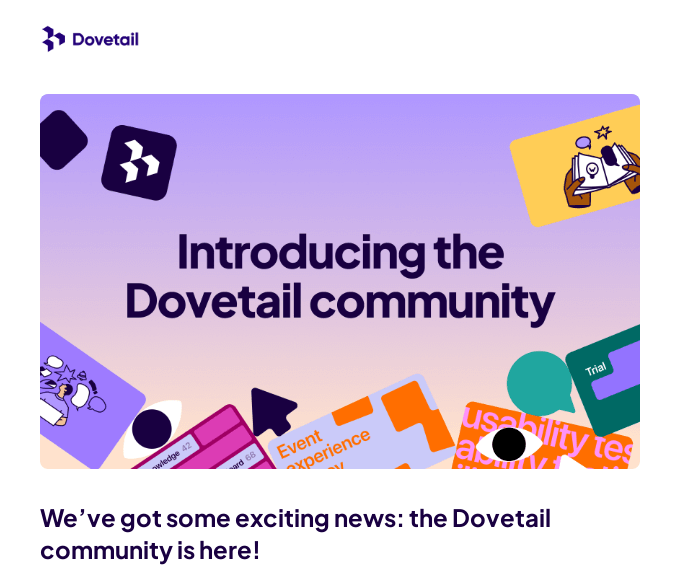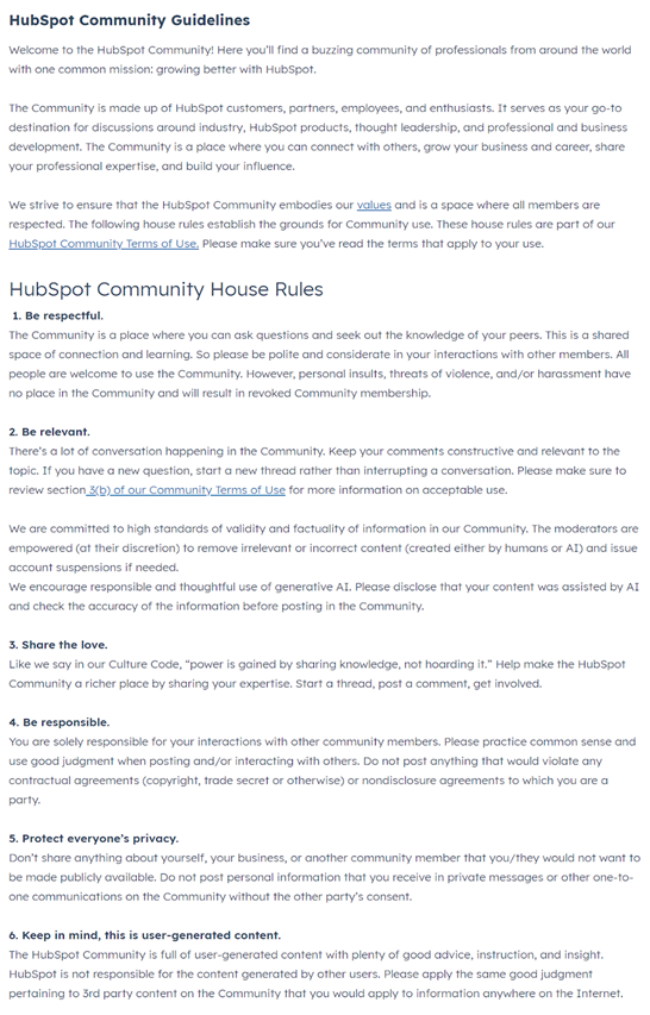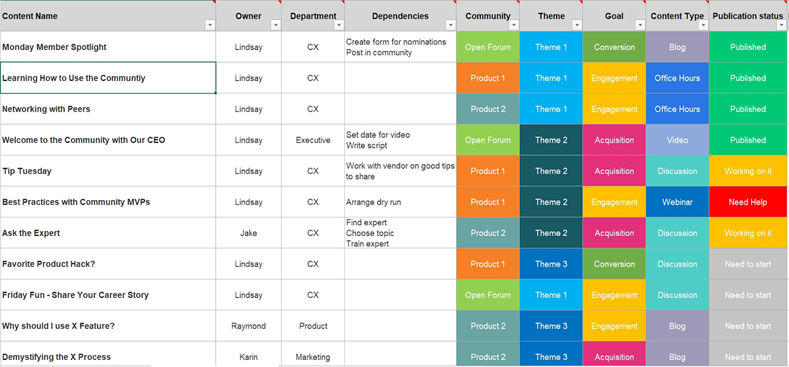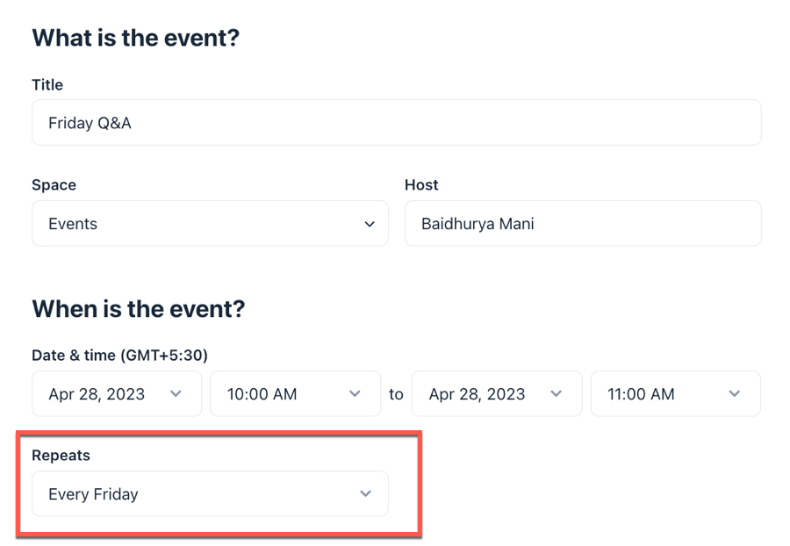Today, most people expect brands to foster open channels that enable businesses to actively listen to feedback, address concerns promptly, and personalize user experience.
One of the channels that has proven significant for taking those actions is online communities that offer a space for meaningful interactions, knowledge-sharing among industry professionals, and relationship-building.
Those benefits have led most B2B businesses today to embrace branded online communities to ensure easier customer relationship management and achieve their overall business goals: 50% of community professionals say their community has an extremely positive impact on achieving business goals, according to a 2023 Community Industry Report.
However, managing and nurturing an online community is no walk in the park. Most B2B brands face some unique challenges. This article will delve into the three most common online community challenges that B2B brands face—and their solutions.
Challenge 1. Attracting Members Initially
Your online community will grow beyond its early stages only if you attract the right initial members.
Early participants shape the community's culture, offer valuable insights, and contribute to meaningful discussions. They establish credibility and become brand advocates, fostering an active and engaged virtual community.
However, attracting initial members can prove an uphill battle because of limited visibility and low engagement, especially for new B2B communities—and especially for a new business that has yet to gain any credibility in its niche.
Though it might be challenging to get your first few virtual community cheerleaders, it's not impossible.
You can start by using your current networks or channels, both business and personal. For instance, you can use your company's online presence to prominently display information about your online community. That presence can take the form of your official website, social media, or even your email marketing, like Dovetail did (click for full image):

Source: Really Good Emails
In addition, invite personal contacts and professional connections. You can offer them relevant incentives, such as discount offers and exclusive content. Also encourage employees to invite others.
Speaking of content, high-quality and optimized content can also help. Sharing such content regularly will help you become a thought leader in your B2B niche, making it easier to attract potential community members. Your content can take any form, anything from blog posts to videos.
Finally, collaborate with influencers and industry experts in your niche to endorse your community to their follower base, helping you boost your brand's credibility. You might, for instance, host online events, such as webinars and hybrid events with panel discussions featuring your partners as guest speakers.
Challenge 2. Keeping Members Engaged and Active
A B2B community's long-term success is determined by the level of active engagement, which presents the next key challenge: keeping members engaged and active.
For various reasons B2B community members become unengaged, including busy schedules and declining interest, often due to content stagnation. At times, members cease feeling a personal connection or that sense of community, naturally leading them to stop engaging.
To encourage members to keep engaging actively, start by creating a comfortable space for all. Create community guidelines or house rules that promote respectful and constructive interactions.
Check out HubSpot's community house rules:

Source: HubSpot
Also, appoint a community manager to keep the community's environment respectful by moderating discussions and addressing any concerns or queries promptly.
Create a content calendar that helps you provide regular content updates and to ensure the resources you share or discussions you initiate are fresh and current. Here's a great example of one:

Source: Higher Logic
To foster connection, ensure each member enjoys a personalized community experience based on their interests. You can use your online community platform's data and analytics to recommend relevant content, discussions, or the best connections within the community.
In addition, create a system for recognizing and celebrating individual members' achievements or milestones. Such recognition can help boost morale and engagement. Also, take and implement feedback from communities, especially on the discussions that members would like to have on your platform.
For the busy members, send personalized notifications or updates to keep them informed. You can also share community developments, updates, and upcoming events through biweekly or monthly newsletters or announcements.
It goes without saying that all these solutions to keep your members engaged will depend on the online community platform you use and the features it offers. Luckily, there's no shortage of excellent online platforms with great features.
For instance, the Circle platform offers a wide variety of community engagement tools, including rich discussion posts, events and livestreaming, group chats, and online courses, as well as community management and moderation tools. For example, here's how simple it is to create an event (click for full image):

Source: "Circle vs. Mighty Networks 2024: Which Comes Out on Top?"
Challenge 3. Privacy and Security Threats
The bigger your B2B brand grows and, by extension, your community, the more likely you are to experience privacy and security threats, such as data breaches. They are a menace that can easily jeopardize the credibility and trust you've gained from your members.
To protect your B2B online community, you must prioritize privacy and security. Here's how:
- Third-party security services. Consider services that provide real-time threat detection, DDoS protection, and firewall services to protect the community from external threats.
- Regular security audits. Audits will help you identify and rectify potential security weaknesses in your community platform, and also ensure your software stays updated.
- Domain privacy protection. Brands should get privacy-protected domain names that allow them to conceal their registration information. Doing this will prevent unauthorized access to sensitive information, reducing the risk of data breaches.
- Two-factor authentication. Two-factor authentication increases your platform's security by ensuring only authorized users can access the community.
- User reporting systems. These systems let community members flag suspicious or inappropriate content or users, thus empowering the community to self-moderate.
- In-built reporting. Some community platforms offer built-in reporting tools that provide insights into online user activity and filters that flag potentially suspicious behavior.
By taking such privacy measures, you will safeguard sensitive information and protect the integrity of the platform, which will, in turn, earn you your community members' trust.
* * *
Creating a great online community for your B2B brand has many substantial rewards, from better customer engagement to building better products. However, successfully managing an online community, especially for B2B brands, is undoubtedly challenging.
We've highlighted three key online community challenges: attracting initial members, keeping members engaged, and maintaining privacy and security. Tackling those challenges with the approaches discussed in this article will ultimately lead to a healthy community that benefits both the brand and its members.
More Resources on Online Community Management
The Importance of B2B Communities: What's in It for Marketers?
Planning an Online B2B Community
How Community Management Can Help Your Business Grow: Rachel Happe [Podcast]
Move Over, Social Platforms: Niche Online Communities Are the Wave of the Future




